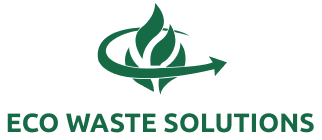Container System Replaces Hazardous Burn Pits
By Scott R. Gourley – Jan 17, 2024
FORT DEVENS, Massachusetts — Against a background that has led the Department of Veterans Affairs to identify “23 presumptive conditions for burn pit exposure,” the Army is entering production on a safer alternative to open air burning or backhauling of solid waste.
The Expeditionary Solid Waste Disposal System will provide a new incineration module to support the Army’s 150-person Force Provider Expeditionary Base Camp.
The module will reduce the use of burn pits by providing a cleaner solution for onsite disposal of 1,000 pounds of solid waste per 24-hour period for an approximate 92 percent volume reduction, Lt. Col. Daniel O’Neill, product manager for force sustainment systems in the Program Executive Office for Combat Support and Combat Service Support, said at the Army’s Future Capabilities Integration Laboratory at Fort Devens, Massachusetts.
“The system also reduces soldier, civilian and local population exposure to pollutants from open air burn pits and reduces the amount of trash that must be backhauled, reducing soldiers’ exposure and attacks during convoy operations,” he explained. “Reducing waste held onsite also deters potential vermin that could spread disease and disrupt operations.”
The system comprises three Tricon shipping containers, each weighing approximately 9,500 pounds, that are attached to create a single 8 by 8 by 20-foot module. The system is designed to be set up and operated by soldiers using the Army’s all-terrain 10K forklift.
O’Neill said the system is simple to operate, requires minimal training and requires no contractor support.
In operation, soldiers will load the primary incineration chamber through a large front door, which is then sealed and electronically locked. The operator uses push-button controls to start the system, which does not require attendance or further operator input. A full batch burn cycle consists of a five-hour burn time followed by a five-hour cool-down, with stack pollution controlled by automatically maintaining a secondary burn chamber at an average of 1,600 degrees Fahrenheit.
The system allows two burn cycles per day to incinerate up to 1,000 pounds of solid waste.
The system completed development and testing requirements in July 2020, with a July 2021 production contract awarded to Enercon Waste Systems, doing business as Eco Waste Solutions USA, he said.
Funding has recently been received for production of 10 units, and the contract “is open for ordering through July 2026 should additional funding become available,” he added.


